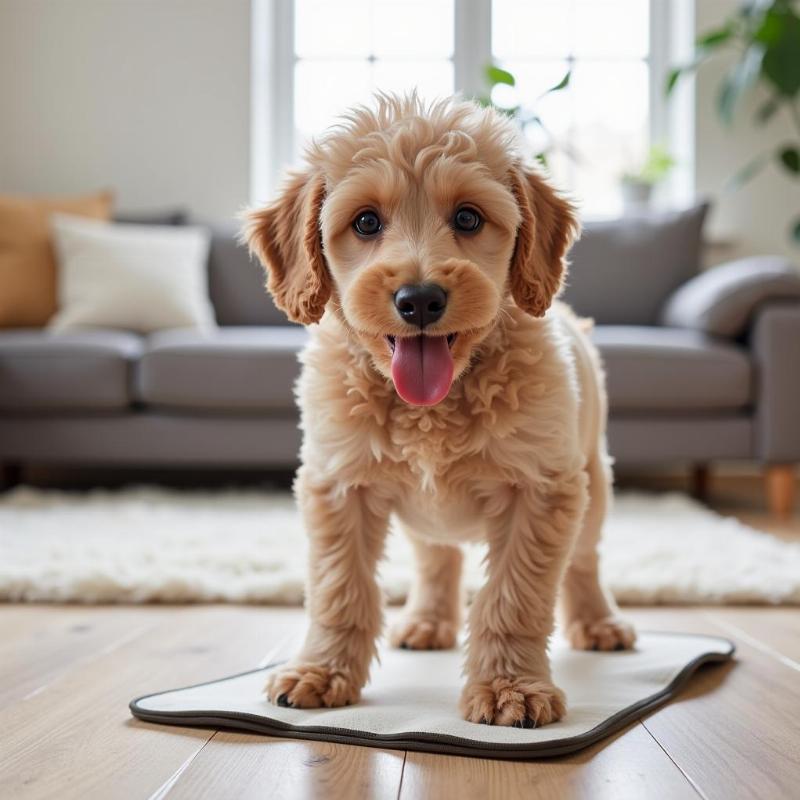Are you dreaming of a spotless home and a pup who knows exactly where to do their business? Finding the easiest dog to potty train can make all the difference. This comprehensive guide will explore breeds known for their quick learning, offer effective training tips, and debunk common potty training myths, setting you and your furry friend up for success in the USA. From understanding your dog’s natural instincts to choosing the right training methods, we’ll cover everything you need to know to make potty training a breeze.
Breed Selection for Easy Potty Training
Some breeds are naturally predisposed to quicker potty training due to their intelligence, eagerness to please, and smaller bladder sizes. These breeds often excel in obedience training overall, making them ideal for first-time dog owners. Consider breeds like the Bichon Frise, Miniature Poodle, Shiba Inu, and Border Collie. Their intelligence allows them to grasp concepts quickly, while their eagerness to please makes them receptive to positive reinforcement methods.
 Miniature Poodle Potty Training
Miniature Poodle Potty Training
Smaller breeds like Chihuahuas, while sometimes stubborn, also benefit from smaller bladders, necessitating more frequent potty breaks, which can inadvertently speed up the training process. However, remember that individual personalities vary within breeds, so early socialization and consistent training are crucial regardless of breed.
Effective Potty Training Strategies
Positive reinforcement is the cornerstone of successful potty training. Rewarding your dog for eliminating in the designated area with treats, praise, or a favorite toy creates a positive association and encourages repetition. Consistency is key; establish a regular potty break schedule and stick to it. This helps your dog predict when they’ll have the opportunity to go, reducing accidents.
Crate training can be a valuable tool, as dogs instinctively avoid soiling their den. Choose a crate appropriate for your dog’s size and introduce it gradually, making it a comfortable and safe space. Never use the crate as punishment.
Common Potty Training Mistakes to Avoid
Punishing your dog for accidents is counterproductive and can create fear and anxiety. If you catch your dog in the act, interrupt with a firm “no” and immediately take them to the designated potty area. Cleaning accidents thoroughly with an enzymatic cleaner is essential to eliminate odors that might attract your dog back to the same spot.
Is There a “Magic Bullet” Breed?
While some breeds are easier to potty train than others, there’s no single “magic bullet” breed. Every dog is an individual, and their learning curve will be influenced by factors like age, past experiences, and consistent training. Choosing a breed known for its trainability increases your chances of success but doesn’t guarantee a mess-free journey.
Conclusion
Potty training your dog doesn’t have to be a daunting task. By understanding your dog’s breed tendencies, utilizing effective training strategies, and avoiding common mistakes, you can achieve a harmonious and clean home environment. Remember, patience, consistency, and positive reinforcement are your greatest allies in this journey. With the right approach and a little dedication, you and your furry friend will be enjoying a mess-free life together in no time.
FAQ
- How often should I take my puppy out to potty? Puppies typically need to go every 2-4 hours, especially after waking up, eating, or playing.
- What are the signs my dog needs to potty? Common signs include restlessness, circling, sniffing, whining, and scratching at the door.
- How long does potty training usually take? It varies, but most dogs are fully potty trained within a few months with consistent effort.
- Should I use potty pads? Potty pads can be helpful for small breeds or in situations where outdoor access is limited, but ultimately transitioning to outdoor elimination is ideal.
- What if my dog has accidents even after being trained? Regression can happen due to stress, illness, or changes in routine. Consult your veterinarian to rule out medical issues and revisit your training methods.
- Is crate training cruel? No, crate training, when done correctly, provides a safe and comfortable den-like space for your dog and can be a valuable tool for potty training.
- What should I do if my dog is afraid of the crate? Introduce the crate gradually, making it a positive experience with treats and toys. Never force your dog into the crate.
how to get dog poop out of concrete
what size dog crate for border collie
how to fix dog scratches on door
outside door with dog door
Beautdogs.us is your premier online destination for comprehensive and engaging information on dog care and companionship in the USA. We offer expert advice on breed selection, training, nutrition, and health, empowering dog owners to provide the best possible care for their furry friends. From puppyhood to senior years, Beautdogs.us is your trusted source for all things dog-related. Contact us today at [email protected] or +1 501-555-7529 for personalized guidance and support.